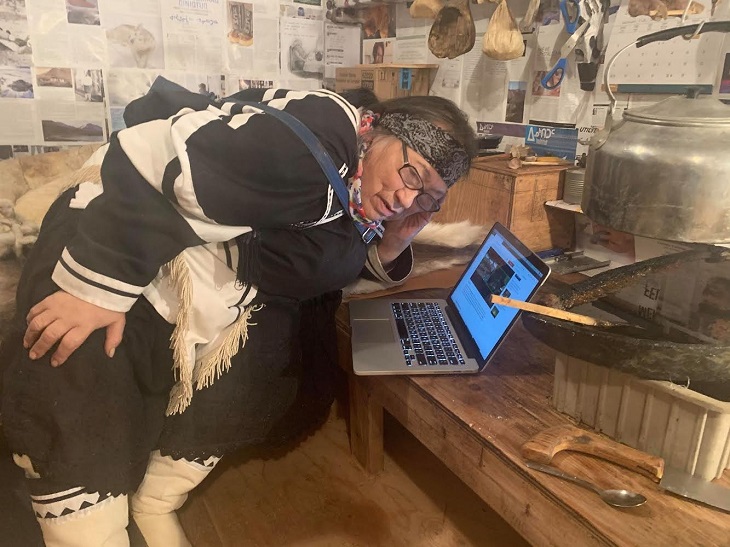
IGLOOLIK, Nunavut — Uvagut TV, Canada’s first 24/7 Inuktut TV channel, announced today it has filed a motion with the Nunavut Impact Review Board (NIRB) to secure the right to broadcast and rebroadcast the next round of public hearings being conducted by the NIRB into the proposed phase two expansion of Baffinland Iron Mines Corp.’s Mary River mine (located in northern Baffin Island).
Cartt.ca readers will remember Uvagut TV first started broadcasting live coverage of the controversial mine hearing in January 2021, shortly after the channel launched.
In April, Uvagut TV was allowed to continue live broadcast coverage of the hearing, but the NIRB ordered the channel not to rebroadcast hearing sessions.
The hearing has since been on hiatus but is scheduled to resume from Nov. 1-6.
Nunavut Independent Television Network (NITV), the Igloolik-based not-for-profit that owns and operates Uvagut TV, filed the legal motion on Sept. 15 to challenge the NIRB’s earlier decision to deny Uvagut TV the right to rebroadcast the public hearings, according to a press release.
“Why is NIRB locking the door?” says Lucy Tulugarjuk, NITV’s executive director, in the press release. “Inuit have the right to hear what is happening on our land. By denying us the right to rebroadcast, NIRB is making it hard for Inuit to be meaningfully informed about a decision that will have a huge and direct impact on their lives.”
The proposed phase two expansion of Baffinland’s Mary River mine “entails the construction of a 110-kilometre railway and would double the amount of ore shipped annually from Baffinland’s northern port near Pond Inlet from 6 million to 12 million metric tonnes,” the press release says.
The expansion “has raised concerns throughout the region, particularly among lnuit in seven impacted communities, relating to land and water contamination, threats to Caribou and marine mammal populations, and the implications for Inuit livelihood, language and culture,” the release adds.
In one of three affidavits submitted with NITV’s motion, Anita Uutuvak from Pond Inlet writes, “I have never been able to watch an entire sitting day of the NIRB Hearings because of work and childcare obligations.”
She also says “given the significance and sustained public interest in the project and the hearings before the Board, and the fact that this project engages a broad spectrum of rights of Inuit, I believe that other members of my community also want to watch the hearings at a time convenient for them to do so, so they can understand the perspectives of the parties and interveners, and understand the recommendation of the NIRB to the Minister once it is made.”
Once the hearings are complete, NIRB will recommend a course of action to the Minister of Crown-Indigenous Relations and Northern Affairs Canada (cabinet duties previously split between Carolyn Bennett and Dan Vandal before the federal election last month), who will make the final decision on the proposed mine expansion.
“NIRB’s move to block Uvagut TV’s rebroadcast is not supported in law,” says Qajaq Robinson, a member of NITV’s legal team and an expert in Indigenous rights.
“There is an increasingly urgent need to ensure transparency in Arctic resource management and development, and the arguments presented in our motion are based on Charter, Constitutional and Common Law rights as well as principles established in the Nunavut Land Claims Agreement, the findings of the Qikiqtani Truth Commission as well as Canada’s commitments to UNDRIP and Reconciliation.”
(Pictured is Susan Avingaq, an elder from Igloolik, watching NIRB hearings on Uvagut TV in January 2021. Photo courtesy of Uvagut TV.)


